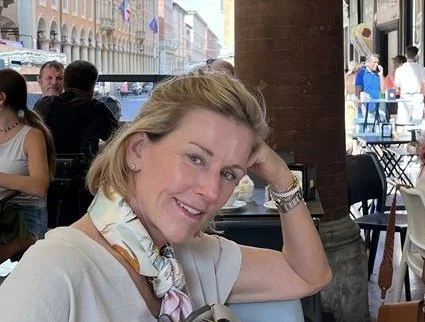Leslie Lacin
Ever since I can remember I have been interested in Russian literature, history and politics. And the Holocaust. I completed a BA at the University of California at Berkeley in Political Science and then, several years later studied Russian language, history and politics at the University of Oxford. Along the way, I did research in the Soviet Union and later, Russia, and wandered the newly liberated countries of eastern Europe. I visited the Concentration Camps and sought out WWII war memorials in large cities and rural backroads, slowly constructing an idea of what had occurred in the years leading up to, and during the Great War. It was, perhaps, natural then to write a novel about a little-known chapter in the WWII history of the Holocaust centered in the North Caucasus.
That novel, You, With Your Waiting, is set in the Soviet Union in 1941-42. I began my research for the story by returning to Russia decades after the tumultuous transition from Communism and the splintering of the old USSR into many countries— Russia, Georgia and Azerbaijan among them. I travelled to all three over a period of ten years to gather the stories of elderly Holocaust survivors and to experience the places where their lives unfolded.
I was exhilarated to be back, a kind of strange homecoming to the places I’d experienced in a former life. I climbed mountains, took pictures, got lost, talked late into the night making friends (and sometimes enemies), bought dried fruit and sheepskins in Caucasian markets, bribed traffic police and drove miles and miles, visiting monuments to the dead, while I chased the last of the living from the WWII era. The survivors, witnesses to the tumult of both the 20th and 21st centuries, were gracious, hospitable and bossy. They made fun of my rusty Russian and wanted to know if I knew Barbara Streisand (I don’t). But they fed me, and sometimes held my hand, while they shared medals and stamp albums and letters from long dead fathers.
While thrilled by the places and people of the region, I returned home, changed, exhausted, and often overwhelmed by the stories I’d heard. The constants in my life—my family, the town I live in, felt alien for a time after my return. I was conscious of knowing too much to bear. But I was always grateful for the connections, the people who shared themselves wholeheartedly and with compassion, eager to tell their story to someone who wanted to listen. I will never forget them.
You, With Your Waiting is about loss and longing, about the human capacity to recreate home over and over again in small ways—lighting coal fires, playing music under the trees, lying in the moonlight. It is about love and separation, resilience and sorrow. It is also about physical courage and moral misgivings, about choice. But most of all, it is a novel about love.
Here I am during my graduate school days in a Soviet Union on the verge of transformation, wielding my trusty Pentax camera.

